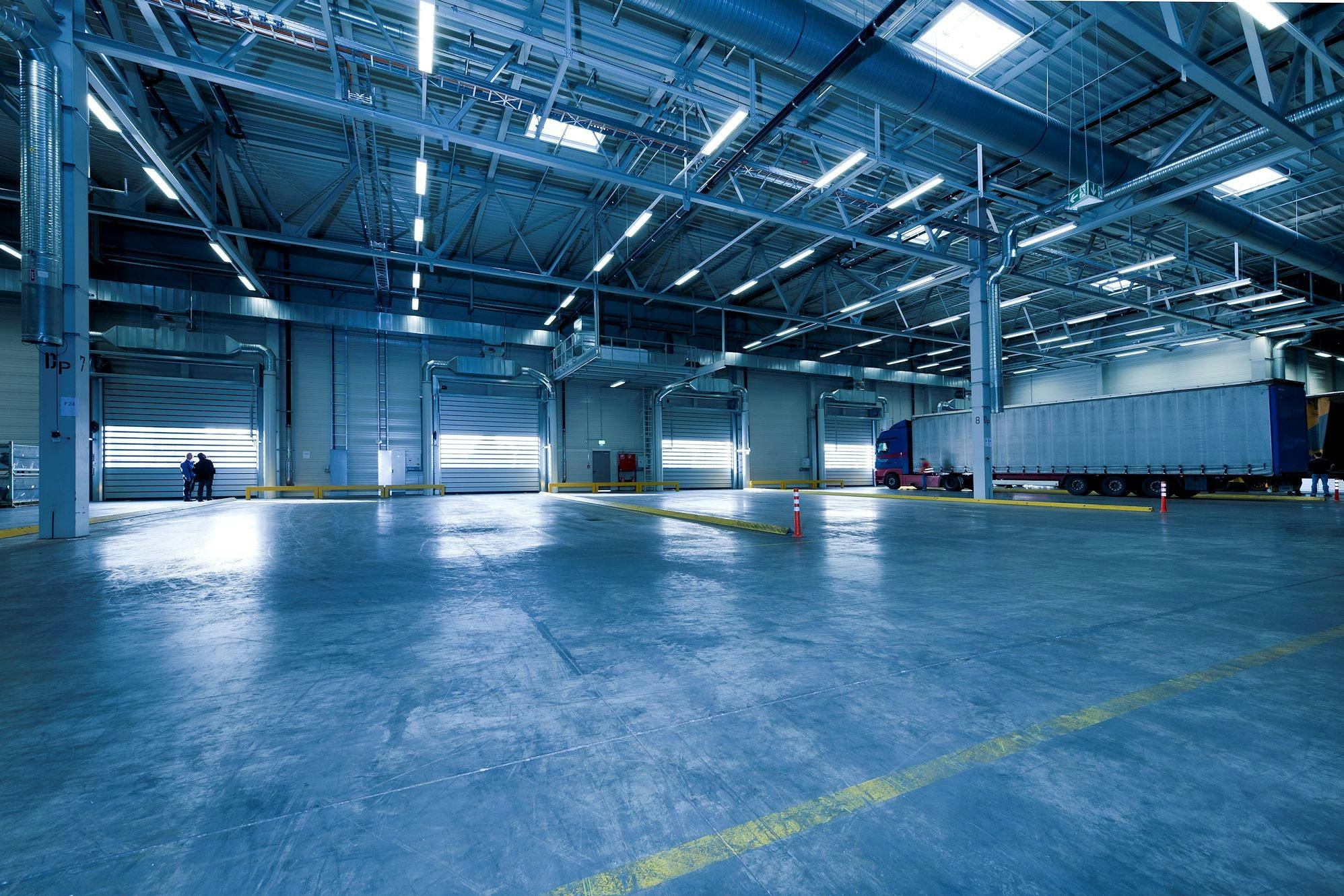Recently, one of the largest logistics companies in the world announced the implementation of a modern Warehouse Management System (WMS), which significantly increased the efficiency of their operations. But what exactly is WMS and how does it work? In this article, we will explore the key functions of this system, how it supports logistical processes in the warehouse, and the benefits it brings to the company. We will also discuss how to choose the right system for your business and what to do when off-the-shelf solutions don’t meet all your needs. Finally, we will look at the future of WMS systems and new technologies that could revolutionize warehouse management.
What is WMS?
WMS, or Warehouse Management System, is advanced software that revolutionizes the way warehouses are managed. It allows companies to effectively control and optimize warehouse processes, resulting in increased efficiency and reduced operational costs. WMS integrates with other ERP systems, enabling smooth management of the entire supply chain. Benefits of using WMS are invaluable. Here are a few:
- Increased inventory accuracy – WMS minimizes human errors, leading to more accurate inventory tracking.
- Optimization of warehouse space – With advanced algorithms, WMS helps maximize the use of available space.
- Faster order fulfillment – Automating warehouse processes shortens the time needed to fulfill orders, increasing customer satisfaction.
- Reduction of operational costs – Efficient management of resources and warehouse processes leads to significant savings.
Introducing WMS to a company is a step towards modernity and efficiency. It enables businesses to better manage their resources, which translates to better customer service and higher profits. Investing in WMS can give you a competitive edge in the market.
What are the key functions of a WMS?
WMS (Warehouse Management Systems) are advanced tools that revolutionize warehouse management. One of the most important functions of WMS is the automation of warehouse processes, which allows for the optimization of operations and increased efficiency. This helps companies reduce operational costs and increase accuracy in inventory management. Key functions of a WMS include:
- Inventory tracking: WMS enables real-time inventory tracking, allowing for better management of warehouse stocks and minimizing errors.
- Warehouse space optimization: With advanced algorithms, WMS helps optimize the placement of goods in the warehouse, increasing efficiency and reducing order picking time.
- Integration with other systems: WMS can be integrated with other ERP and TMS systems, enabling smooth information flow and better coordination across the supply chain.
Automation of warehouse processes is not only a time saver but also increases accuracy and reduces errors. With WMS, companies can better manage their resources, leading to higher customer service quality and greater market competitiveness.
How does WMS support logistical processes in the warehouse?
Warehouse Management Systems, known as WMS (Warehouse Management System), are tools that revolutionize the way we manage warehouses. They make logistical processes more efficient and precise. WMS automates many tasks, such as receiving goods, product location, order picking, and shipping. This leads to significantly shorter operation times and reduced errors.
One key aspect of WMS is the ability to track goods in real-time. This allows warehouse managers to monitor inventory levels continuously, enabling better planning and avoiding stockouts. Below, we present a comparison between traditional warehouse management and management using WMS:
| Aspect | Traditional Management | WMS Management |
|---|---|---|
| Inventory Tracking | Manual, prone to errors | Automatic, real-time |
| Order Picking | Manual, time-consuming | Automatic, fast |
| Receiving Goods | Manual, labor-intensive | Automatic, efficient |
| Shipping | Manual, prone to errors | Automatic, precise |
Implementing WMS in a warehouse is an investment that quickly pays off. Through automation and precise management, companies can significantly reduce operational costs and increase customer satisfaction. WMS is not just a tool, but a true revolution in warehouse management.
Benefits of implementing WMS in a company
Implementing a Warehouse Management System (WMS) is not only a step towards modernity but also a way to increase operational efficiency. With WMS, companies can optimize warehouse processes, which translates to faster and more accurate inventory management. This tool allows for the automation of many tasks, minimizing the risk of human error and increasing the accuracy of warehouse operations. Another significant benefit is improved customer service. With WMS, companies can fulfill orders faster, leading to increased customer satisfaction. The system also allows for better monitoring of warehouse stock, enabling quicker responses to changing market needs. As a result, companies can better manage their resources and minimize operational costs. Implementing WMS also provides better control over logistical processes. The system offers advanced analytical tools that help identify and eliminate bottlenecks in warehouse processes. This allows companies to plan and execute their operations more effectively, increasing their competitiveness in the market. In summary, implementing WMS is an investment that brings tangible benefits in terms of increased operational efficiency, improved customer service, and better control over logistical processes.
How to choose the right WMS for your company?
Choosing the right Warehouse Management System (WMS) is a crucial step in optimizing warehouse management. First and foremost, it’s important to consider the scalability of the system. Will it be able to grow with your company? Experts advise choosing solutions that can easily adapt to changing business needs. Another important aspect is integration with existing systems. Ensure that the chosen WMS will be compatible with your current ERP, CRM, or other tools you already use. Experts emphasize that a lack of integration can lead to serious operational problems and additional costs. Also, do not forget about technical support and training. Even the best WMS will not bring the expected benefits if your employees do not know how to use it. It is worth investing in a provider that offers comprehensive support and regular software updates. Experts recommend thoroughly analyzing the offers of different providers before making a decision and choosing the one that best meets the needs of your company.
What if an off-the-shelf system doesn’t suffice? Design a dedicated WMS with IT-solve
Sometimes, off-the-shelf solutions do not meet all your business needs. In such cases, it is worth considering a dedicated Warehouse Management System (WMS) designed specifically for your company. IT-solve offers comprehensive services in creating customized warehouse management systems that can significantly improve operational efficiency. Why choose a dedicated WMS? Here are a few reasons:
- Personalization: A dedicated WMS is tailored to the specific needs of your warehouse, allowing for better management of resources and processes.
- Scalability: The ability to expand the system as the company grows, ensuring long-term efficiency.
- Integration: Easy integration with other IT systems in your company, enabling smooth information flow.
IT-solve is a team of experts who will help you design and implement a WMS system perfectly suited to your needs. This will give you full control over warehouse processes, leading to increased efficiency and reduced operational costs. Don’t wait, contact us and see how we can help your company achieve new heights of efficiency!
The future of WMS systems and new technologies
Warehouse Management Systems (WMS) are evolving at a rapid pace, with new technologies bringing revolutionary changes to warehouse management. Automation and artificial intelligence are becoming the standard, allowing for the optimization of processes and increased efficiency. With robotics, warehouses can operate 24/7, minimizing human errors and speeding up order fulfillment. The Internet of Things (IoT) allows for real-time monitoring of inventory status, leading to better resource management.
The introduction of blockchain technology into WMS systems ensures data security and transaction transparency. This allows companies to track every stage of the supply chain, which is crucial for ensuring quality and compliance. Augmented Reality (AR) and Virtual Reality (VR) are being used in employee training and optimizing warehouse layout, increasing productivity and reducing operational costs.
| Technology | Application | Benefits |
|---|---|---|
| Automation | Robotics, automated shelves | Increased efficiency, error reduction |
| Artificial Intelligence | Data analysis, inventory forecasting | Better resource management, process optimization |
| Internet of Things (IoT) | Real-time monitoring | Better inventory control, reduced losses |
| Blockchain | Supply chain tracking | Data security, transaction transparency |
| AR/VR | Training, warehouse layout optimization | Increased productivity, cost reduction |
As these technologies become more accessible and affordable, companies of all sizes can benefit from their implementation. Investing in modern WMS systems is not only a way to increase competitiveness but also to improve customer service quality and employee satisfaction. The future of warehouse management is now, and companies that quickly adapt to these innovations will be market leaders.
Conclusion
Warehouse Management Systems (WMS) are advanced tools that revolutionize warehouse management, bringing numerous benefits such as increased efficiency, optimization of warehouse space, and reduction of operational costs. Implementing WMS is an investment in the future of the company, enabling better resource management, faster order fulfillment, and improved customer service. To choose the right WMS system, it is worth considering its scalability, integration with existing systems, and technical support. In cases where off-the-shelf solutions do not meet all needs, IT-solve offers dedicated WMS systems tailored to the specific requirements of the company. The future of WMS systems lies in automation, artificial intelligence, IoT, blockchain, and AR/VR, which are bringing revolutionary changes to warehouse management. If you want to learn more about how we can help your company achieve new heights of efficiency, contact us today!




